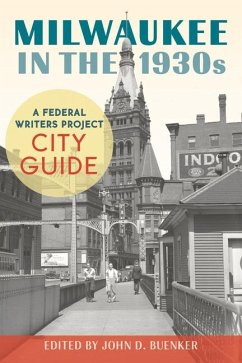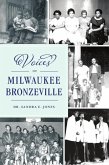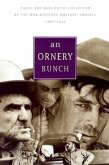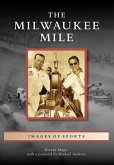Milwaukee in the 1930s provides a never-before-published, unique record of a pre-World War II American city. Written by participants in the Federal Writers Project in the 1930s and edited in the present-day by John D. Buenker, the book covers the geography, economy, and culture of thirteen neighborhoods of old Milwaukee, ranging from Civic Center to Bay View, with photographs, maps, and auto tours.
Hinweis: Dieser Artikel kann nur an eine deutsche Lieferadresse ausgeliefert werden.
Hinweis: Dieser Artikel kann nur an eine deutsche Lieferadresse ausgeliefert werden.








